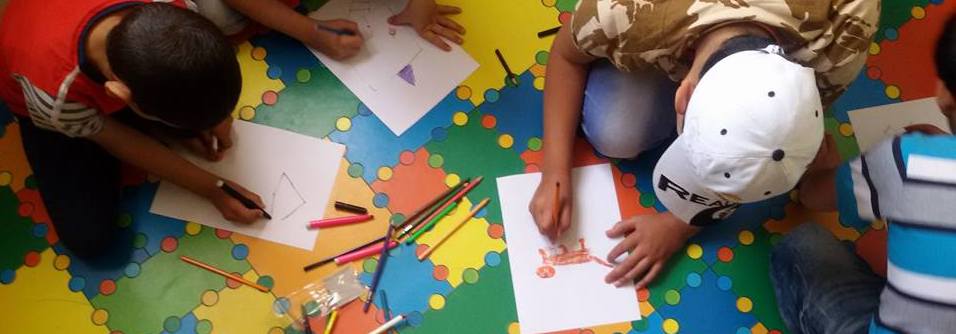May 31, 2017
“If we were to create something called ‘human devastation syndrome’ that is what we’re seeing,” with these words, Dr. MK Hamza, Chair of SAMS Mental Health Committee, kicked off his discussion of mental health in Syria, at the SAMS’s 6th Annual National Conference in Los Angeles, CA on February 18th, 2017.
His term soon took on a life of its own, representing the unique and horrific scale of the trauma weighing on the youngest victims of Syria’s six years of conflict.
Thousands of miles away, at a psychological support facility in Syria called the “White Hand Center,” a mother brought in her 8-year-old son, Kasem, for a consultation. He cried often and was very isolated. His mother stated that he refused to go to school and complained of constant abdominal pains and pallor, in addition to isolation from his classmates.
Toxic Stress & The Impact of Conflict on Mental Health
For both children and adults, the conflict in Syria has had a severe impact on their psychological well-being. According to a recently released report by Save the Children, at least 3 million Syrian children under the age of six have known nothing but war and violence. Children in Syria grapple with being in a state of “toxic stress,” leading to behaviors such as, bedwetting, self-harm, or isolation.
More importantly, children have nowhere to turn when coping with these feelings. In some regions of more than 1 million people, interviewees in the Save the Children report said there is just one professional psychiatrist. One in four of the children interviewed said that they did not have anyone to talk to when they were scared, sad, or upset.
“We’re dealing with the dark side of losing one’s identity as a human being in the face of crisis,” said Dr. Iyad Khouri, SAMS doctor and member of the Mental Health Committee, when asked about the complexity of dealing with mental health issues in the wake of war.
In response to this , SAMS has devoted resources and capacity building to ensuring that children in Syria and in neighboring countries have a safe place to go to address these feelings and heal. The White Hand Center is one of the psychosocial centers SAMS has sponsored.
Welcome to the White Hand Center
Upon his arrival, Kasem was interviewed alone to identify the reasons behind his crying and isolation. However, he gave little information about his mental state. Specialists at the White Hand Center worked closely with Kasem and his mother to learn more about the root of his distress in order to inform the treatment needed.
Kasem’s fear of going to school was linked to the lack of security in Syria. He had witnessed shelling on his village, as well as aerial attacks next to his house and nearby hospital. His family provided him with a great deal of care and protection, but according to our specialists, this resulted in his lack of confidence.
Our specialists worked closely with Kasem’s family to determine key practices they could develop to rebuild Kasem’s confidence and cope with his anxieties, such as using inventive ways to encourage Kasem to go to school, and motivating him with rewards for attending his classes. Even after a few therapy sessions, his mother saw an improvement: Kasem was more willing to go to school. Our team in Syria continues to be in touch with the family, and after four months, Kasem has shown great improvements.
How We Are Supporting Syria’s Next Generation
For children of Syria, sustainable solutions must be found to eliminate the root causes of their psychological distress and: aerial bombardment attacks, displacement, and siege, and to address the lingering effects of trauma. SAMS is committed to supporting the next generation of Syrians cope with the wounds of war.
 Last year in Syria , SAMS provided 35,616 psychosocial care services such as screening, group sessions, individual counseling and psychiatric care with medication management. SAMS supports psychosocial centers in Dera’a and besieged East Ghouta, and a telepsychiatry center in Idlib.
Last year in Syria , SAMS provided 35,616 psychosocial care services such as screening, group sessions, individual counseling and psychiatric care with medication management. SAMS supports psychosocial centers in Dera’a and besieged East Ghouta, and a telepsychiatry center in Idlib.
To learn more about our psychosocial programs in Syria and neighboring countries, check out our 2016 Annual Report. You can support Syria’s next generation by donating to SAMS today: www.sams-usa.net/donate


